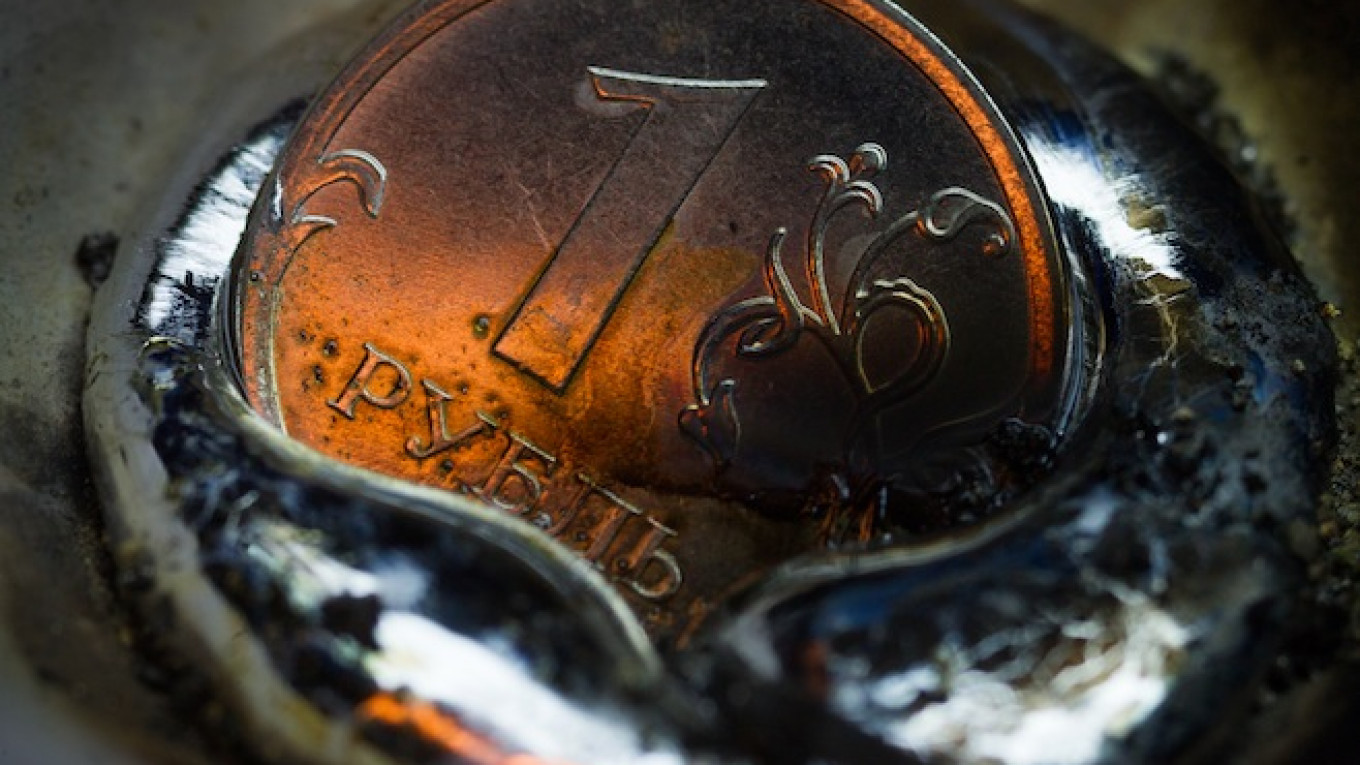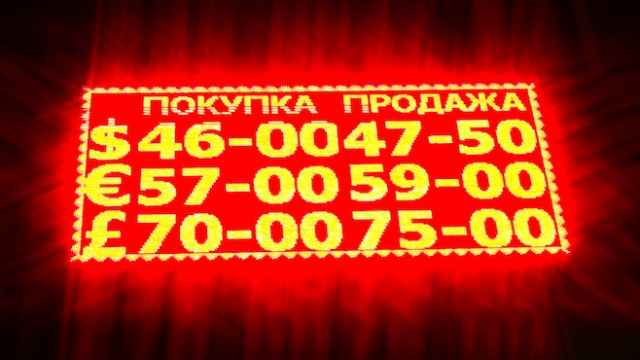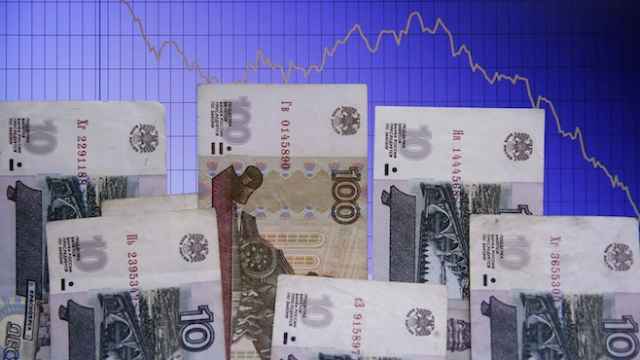Fringe deputies from Russia's lower house of parliament attacked the Central Bank late last week, their voices ringing loud in a silence left by the Kremlin and state television channels that remained reluctant to speak about the ruble's dramatic devaluation.
Several deputies will next week officially request that the Central Bank face a criminal investigation for enabling the ruble's fall, Yevgeny Fyodorov, a State Duma deputy and member of the ruling United Russia party, told The Moscow Times on Friday.
“The Central Bank is allowing the ruble to weaken and the economy to fail because it is carrying out the commands of the United States,” Fyodorov said, declining to name the other deputies who will sign the letter to the Prosecutor General's Office.
“If there is pressure on the ruble then the Central Bank should spend reserves,” he said. The ruble fell to historic lows of nearly 49 to the U.S. dollar and more than 60 to the euro on Friday amid growing fears of a currency crisis.
Official Silence
While Fyodorov is known for his oddball pronouncements, his criticism of the regulator's monetary policy has been given more prominence by the Kremlin's hesitation to publicly support the Central Bank.
President Vladimir Putin's spokesman, Dmitry Peskov, declined to answer questions about the fall of the ruble on Friday. “I am not a financier. I am not commenting on this,” Peskov was quoted by news agency TASS as saying.
While the ruble has lost almost 25 percent against the dollar since the beginning of October, Putin has largely refrained from addressing the issue. His only public comments came in the middle of last month, when he promised that Russia would not “mindlessly burn through reserves” in a bid to prop up the ruble.
The Central Bank and Finance Minister Anton Siluanov both sought to calm markets with statements Friday, assuring journalists that the ruble was undervalued and expected to rebound, but other officials appeared unwilling to talk.
Five senior members of the Duma's Financial Markets Committee, including the committee's chairwoman, all declined to comment on the state of the ruble when contacted by The Moscow Times on Friday.
Little Airtime
While tightly controlled state television channels — through which most Russians get their news — have not entirely avoided the subject of the plummeting ruble, coverage has been visibly cautious.
Leading state-owned station Channel One did not mention the ruble during its 9 a.m. and noon news broadcasts Friday even as the currency went into free fall.
Its 3 p.m. news broadcast contained a short, one-minute report on the currency, which implied that it was the strength of the euro and the dollar that was causing ruble weakness rather than domestic factors.
Among several articles on the ruble's plight published by Kremlin-loyal tabloid website LifeNews on Friday, one collated a series of Internet memes making light of the ruble's descent.
Central Bank Attacked
The lion's share of public criticism has fallen squarely on the Central Bank, whose decision Wednesday to cap its interventions on currency markets at $350 million a day triggered the dramatic falls seen this week.
Economist and former prime ministerial adviser Mikhail Delyagin accused the regulator of deliberately destabilizing currency markets in an article published on his website Thursday.
“The people who appointed female liberals to the head of the Central Bank … have created a terrible threat to Russia,” Delyagin wrote. The head of the Central Bank, Elvira Nabiullina, is a woman.
Duma Deputy Fyodorov warned that the Central Bank's actions were leading to “mass unemployment and a severe drop in living standards.”
He added: “All this is being done to prepare for a Russian Maidan and the removal of Putin,” referring to the square in central Kiev that was the focus of the Ukrainian protest movement that overthrew the country's former government earlier this year.
Extreme Solutions?
The ruble's dramatic fall of more than 10 percent in two days has also raised the specter of Russia's financial authorities exploring more outlandish ways to tackle the situation.
Such options could include capital controls or a fixed exchange rate — both of which have been publicly proposed by Kremlin economic aide Sergei Glazyev in recent months.
The Central Bank was discussing the possible imposition of capital controls in the event of further devaluation as long ago as September, Bloomberg reported on Sept. 30, citing unnamed sources.
The dramatic ruble volatility of the last few days has raised the likelihood that restrictions on the free flow of money could be imposed, Citibank's chief Russian economist, Ivan Tchakarov, said in a note Friday.
“Some forms of capital controls may no longer be considered an exotic avenue to pursue but maybe a legitimate policy tool to be employed to preserve financial stability,” he wrote.
Contact the author at h.amos@imedia.ru
A Message from The Moscow Times:
Dear readers,
We are facing unprecedented challenges. Russia's Prosecutor General's Office has designated The Moscow Times as an "undesirable" organization, criminalizing our work and putting our staff at risk of prosecution. This follows our earlier unjust labeling as a "foreign agent."
These actions are direct attempts to silence independent journalism in Russia. The authorities claim our work "discredits the decisions of the Russian leadership." We see things differently: we strive to provide accurate, unbiased reporting on Russia.
We, the journalists of The Moscow Times, refuse to be silenced. But to continue our work, we need your help.
Your support, no matter how small, makes a world of difference. If you can, please support us monthly starting from just $2. It's quick to set up, and every contribution makes a significant impact.
By supporting The Moscow Times, you're defending open, independent journalism in the face of repression. Thank you for standing with us.
Remind me later.







